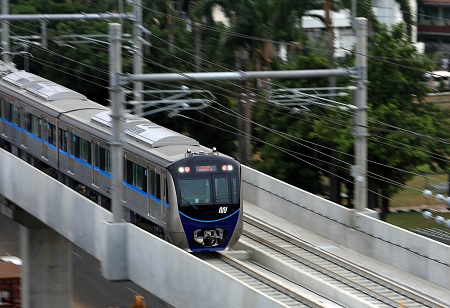
Japanese Companies Consider Investing in Jakarta's MRT Transit Hubs


The Indonesian and Japanese governments recently formalized their collaboration through the signing of the Exchange of Notes, marking a significant milestone in the development of the Jakarta Mass Rapid Transit (MRT) East-West Line Plan Phase 1 project. This agreement was sealed by Japanese Ambassador to Indonesia Masaki Yasushi and Director General of Asia Pacific and Africa of the Ministry of Foreign Affairs Abdul Kadir Jailani.
Ambassador Masaki underscored Japan's ongoing commitment to supporting the expansion of Jakarta's urban transportation infrastructure, highlighting the successful launch of the North-South MRT line in 2019. He emphasized that the forthcoming East-West Line would significantly enhance Jakarta's public transportation network, alleviating traffic congestion and fostering economic growth while addressing environmental concerns and climate change mitigation.
Jailani conveyed Indonesia's appreciation for Japan's steadfast assistance and acknowledged the transformative impact of the MRT system on Jakarta's urban landscape since its inauguration. The planned East-West Line, alongside a comprehensive railway network, promises to further alleviate congestion, bolster investment prospects, and promote sustainable development objectives.
The embassy elaborated on the strategic significance of implementing Japanese technology and expertise, particularly in the construction of underground tunnels, railway infrastructure, and signalling systems. The incorporation of Special Terms of Economic Partnership (STEP) underscores Japan's commitment to facilitating technology transfer and capacity building in developing countries like Indonesia.
Overall, the collaborative efforts between Indonesia and Japan in advancing the MRT East-West Line project signify a shared commitment to fostering sustainable urban development and enhancing the quality of life for Jakarta's residents. By leveraging Japanese expertise and investment, Indonesia aims to create a modern, efficient, and environmentally friendly public transportation system that aligns with its broader development goals.

